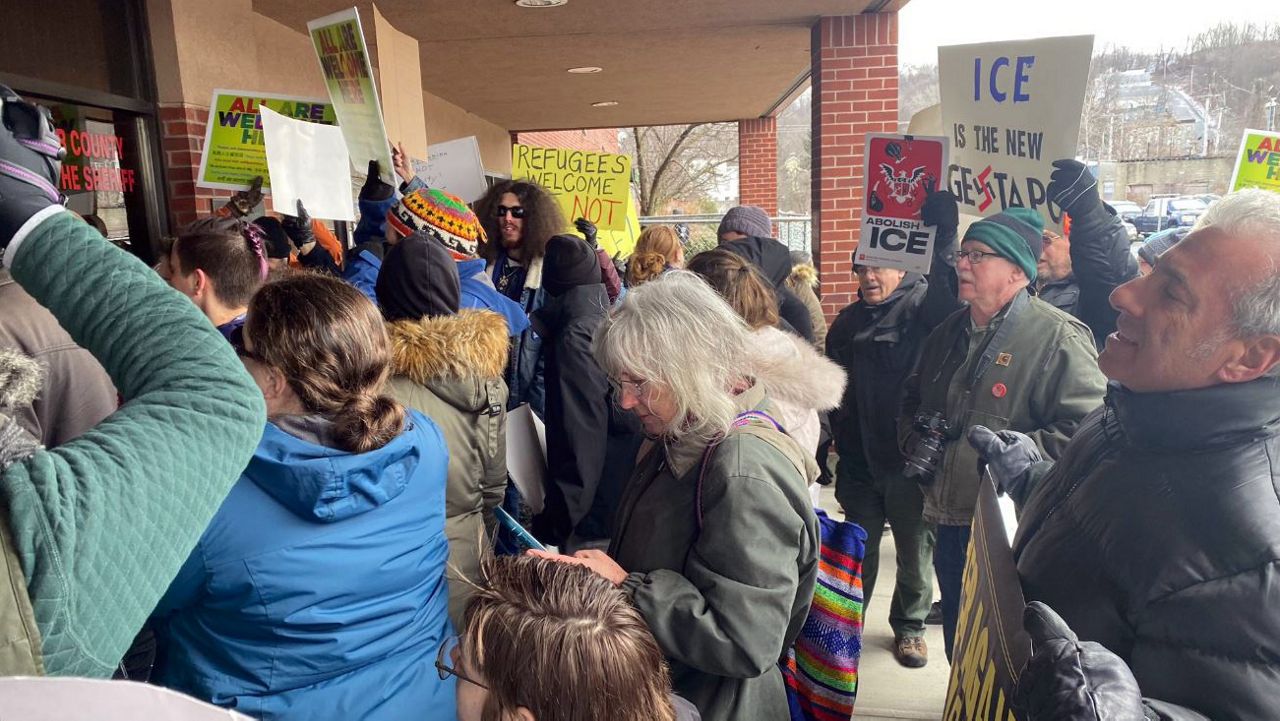During President Obama's administration, red states sought to challenge his agenda.
Republican attorneys general filed lawsuits. GOP governors and state legislatures approved resolutions and laws meant to prevent what they saw as federal overreach.
With President Trump's victory in 2016, the script was flipped. Democratic states sought to become a bulwark against his policies. States like New York and California have approved measures bolstering abortion rights as some states have made it harder to obtain an abortion; blue states have challenged the Trump administration on signature issues like immigration.
And during this time, it seems like the country was splitting into two distinct versions of itself: One where blue states have passed laws making it easier vote, another where red states are less likely to approve regulations for gun ownership.
Through it all, these states have transmogrified the use of the term "state's rights." Once a haven for racists to justify segregation, it's now used as something of a catch-all for blue or red states to declare their ability to approve laws outside of federal influence.
So that brings us to this month, when the federal government sought to freeze New Yorkers from registering in trusted traveler programs, citing the law that allows undocumented immigrants to apply for driver's licenses.
The measure blocks federal immigration enforcement officials from obtaining the state's DMV database over concerns the move would lead to the targeting of undocumented immigrants in New York. Acting ICE Director Matthew Albence during a trip to Troy last week said his agency is not seeking to use the database to target undocumented people, but as a public safety tool.
Governor Andrew Cuomo, meanwhile, has made several public calls for compromise: Sharing the records on a case-by-case basis or expunging Social Security numbers from the database, so undocumented people aren't readily identified by not having one.
For now, it appears the federal government isn't jumping on either of these proposals.
"I don't know how to compromise on public safety," Albence said in an interview.
Republican state lawmakers have called for an end to the resolution by rescinding the law itself — something that's unlikely to happen.
Some Democratic lawmakers have said there should be at least amendments to allow some sharing of the database with immigration officials, a move that could send a jolt of anxiety through the undocumented community in New York.
Cuomo, no stranger to finding pressure points in his negotiations, has said the effort by the federal government is meant to exact leverage over him until he gives in. Cuomo vowed repeatedly on Friday to not provide any information to ICE or similar agencies that would lead to the targeting of undocumented people.
- RELATED | No Resolution After Cuomo and Trump Meet
It's a major test of what had been a re-election pledge and theme for Cuomo's third-term victory in 2018: He, not Cynthia Nixon or Marc Molinaro, is best equipped at standing up to Trump.
Either way, it's a sign of how the state-federal relationship is potentially changing.
New York's law allowing undocumented people to apply for driver's licenses, long a controversial one in state politics dating back to Hillary Clinton's campaign, and now snagged in the crosscurrents of power and the national immigration debate.


